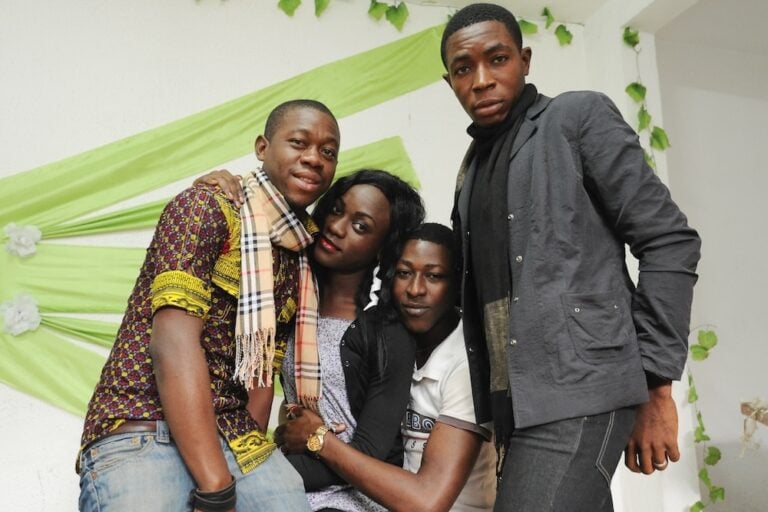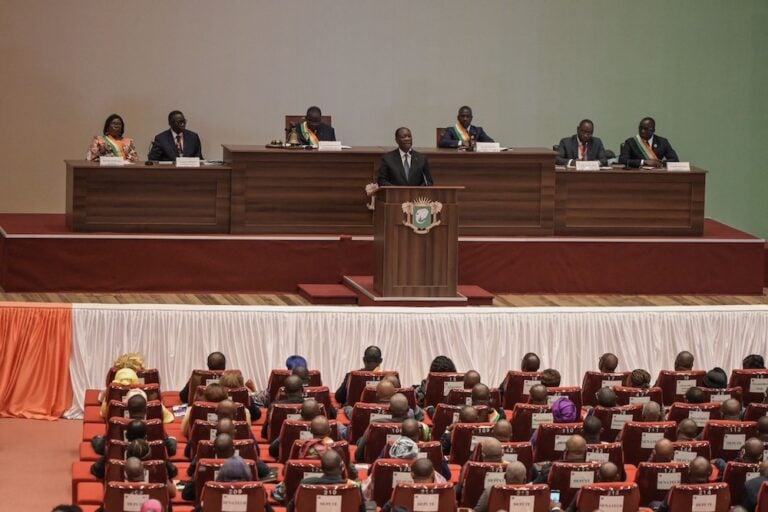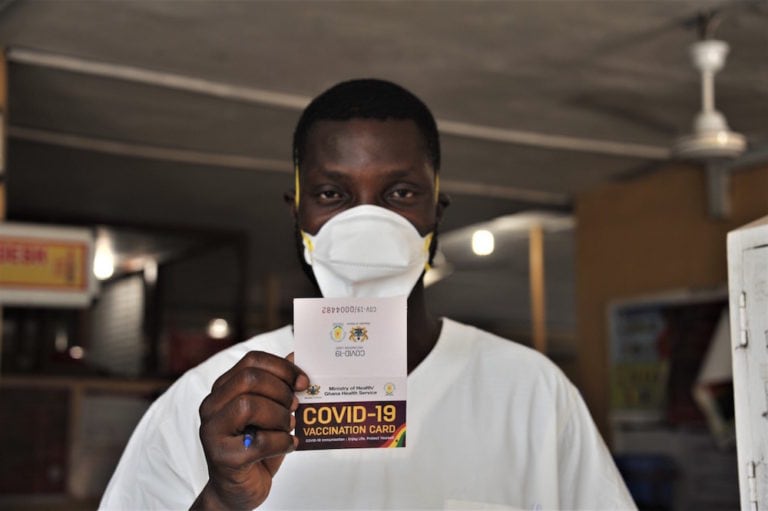RSF visited Abidjan from 9 to 11 November 2009 to evaluate the current media situation and recommend measures to guarantee press freedom ahead of upcoming elections.
(RSF/IFEX) – The Ivorian press is already in full election campaign mode although the presidential election initially scheduled for 29 November has been postponed (without a new date so far being set), Reporters Without Borders found during a visit to Côte d’Ivoire last month that included meetings with President Laurent Gbagbo and the staff of many newspapers.
Reporters Without Borders secretary-general Jean-François Julliard and Africa desk officer Ambroise Pierre visited Abidjan from 9 to 11 November to evaluate the current media situation and recommend measures to guarantee press freedom ahead of the elections.
They urged media executives and journalists to behave professionally and encouraged regulatory bodies to respect diverse political views. They also announced that Reporters Without Borders would monitor the media’s performance during the election campaign, both quantitatively (distribution of airtime) and qualitatively (coverage of each candidate).
“The date of the presidential election may have been postponed but the press is already in election campaign mode,” Reporters Without Borders said. “In the run-up to an electoral period that will be delicate and decisive, we urge the media to show more respect for journalistic ethics and to defend editorial independence.”
The press freedom organisation added: “We have not forgotten the excesses of the past – including verbal abuse and calls for the ransacking of premises – in both the print media and state television. This must not recur.”
Diverse but poor quality media
The variety of publications in Abidjan is striking but their quality is very uneven. Newspapers tend to run sensationalist stories and often announce “investigations” or “special reports” with little substance. For example, the 11 November issue of the weekly “Le Temps Hebdo” announced that its next issue would contain an “explosive report” entitled: “Côte d’Ivoire presidential election – What France is preparing for election day. How Paris intends to give power to Ouattara. The fate reserved for Laurent Gbagbo and Konan Bédié.” But the report turned out to contain no credible information.
Ivorian officials complained about the media’s poor quality to Reporters Without Borders. “I prefer a press that is mediocre as a result of its own shortcomings rather than outside control,” President Gbagbo told Reporters Without Borders.
Communication minister Ibrahim Sy Savané said: “Press freedom is being defended at the expense of quality.”
Recognising that the economic environment for the press is difficult, the communication minister welcomed the adoption of a collective agreement that is supposed to help journalists and ensure that a media assistance fund is operational.
But the media had a completely different view of this development. Several of them said they had not yet received any state assistance and did not think the collective agreement was workable. Print runs are relatively low – the total number of newspapers being sold nowadays is about the same as the print run of the state-owned Fraternité Matin alone 10 or 15 years ago – and distribution within the country is problematic.
Reporters Without Borders was disappointed to confirm in Abidjan that the Press Freedom, Ethics and Conduct Observatory (OLPED) – a unique and interesting experiment in self-regulation – is no longer functioning.


